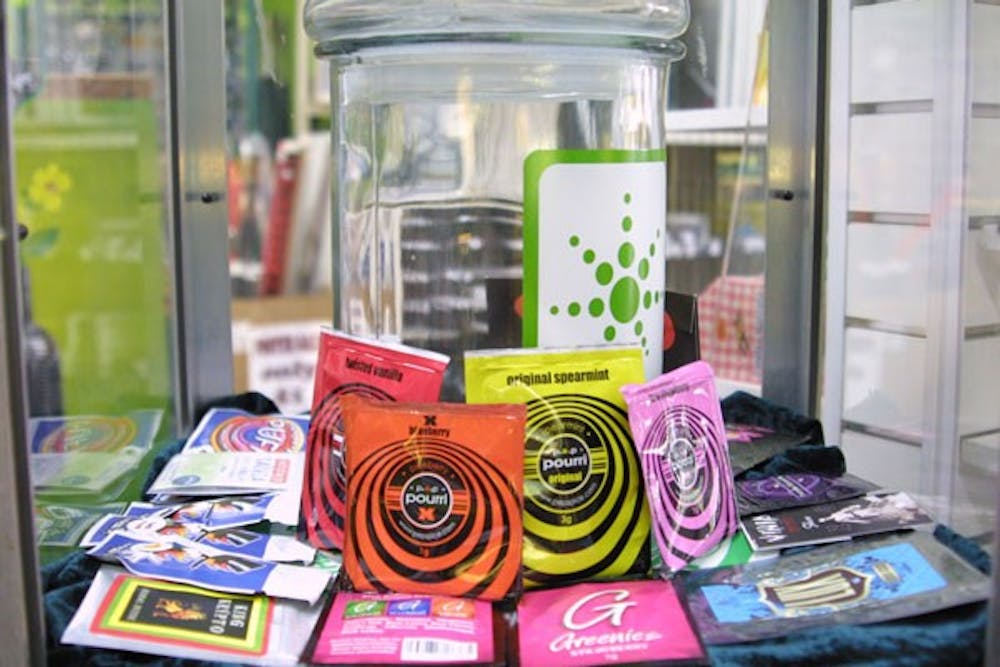An “herbal incense blend” sold at smoke shops around the Valley that has similar effects to smoking marijuana when inhaled is becoming a popular replacement for some students.
The incense, which is legal, has been described by users as inducing the same euphoria, hunger and sleepiness resulting from smoking actual pot.
Ted Kaercher, owner and manager of The Headquarters smoke shop in Tempe, said products containing the chemical have been growing in popularity across the state.
The incense blend has been available at Kaercher’s shop since the summer of 2009, but has begun been selling rapidly in the last few months.
“There’s a lot more awareness about it, and it’s been getting a lot of press,” he said.
The incense comes in various brands and scents and is labeled as “not intended for human consumption.”
“It’s not intended for smoking,” Kaercher said.
But this is how it is most often used.
The product contains a synthetic chemical known as JWH-018, which was developed in 1995 by Clemson University organic chemistry professor John W. Huffman.
A spokesman for the Tempe Police Department said there is no law about JMH-018 and said narcotics detectives have found few people in possession of the incense.
According to his Clemson University bio, Huffman’s research involved developing and isolating compounds that would attach to the cannabinoid receptors in the brain in the same fashion as Tetrahydrocannabinol (THC), the intoxicant in marijuana.
According to a November 2009 report by the U.S. Drug Enforcement Agency, JWH-018 has “cannabinoid-mimicking effects” and is among several other synthetic cannabinoids that are considered “drugs of chemical concern.”
Since the THC-like substance in the incense doesn’t appear on drug tests, some students use it as a marijuana replacement.
Grayson, a parks and tourism management sophomore who declined to give his name because of potential legal ramifications, said he smokes marijuana once a week and is considering switching to incense.
Grayson said he has health insurance from his employer and his company administers drug tests to employees for liability when they submit claims.
“If I get hurt at work and don’t pass a drug test, they won’t pay for my injury,” he said.
Kate, a theatre junior who declined to give her name because of potential legal ramifications, said smoking the incense was just as effective as actual marijuana, so she sees the herbal blend as a “great alternative.”
“The texture was drier and it didn’t smell good, but it felt exactly the same,” she said.
While Kate said she enjoys smoking marijuana socially, her academic goals and desire to get involved in a theatre company would be compromised if she faced any charges.
“I want to be respected in the theatre community and have lasting relationships, and I don’t want drugs on my criminal record.”
Kate said she wants to take every effort to avoid the repercussions of getting caught with illegal drugs.
“It’s a crime, and I’m not a criminal,” she said.
Reach the reporter at chase.kamp@asu.edu





